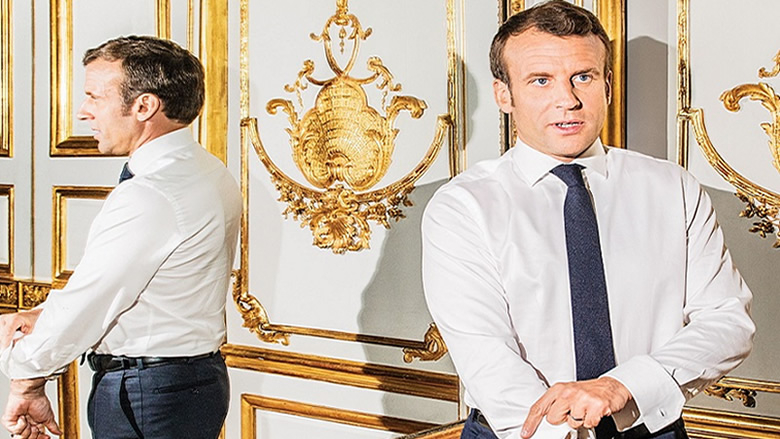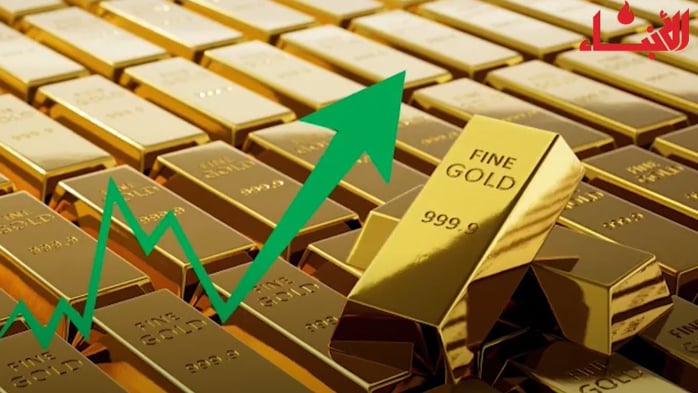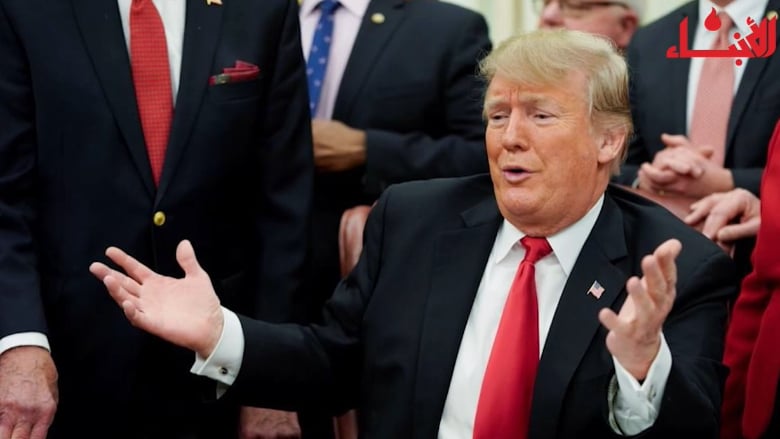mmanuel Macron, a paradox in executive form, was sitting in his office at the Élysée Palace, eight days after the European Parliamentary elections, a loss that was really a win. He was the President of “neither the right nor the left,” the youngest leader of America’s oldest ally, a grassroots campaigner who managed in a top-down style, a hyper-rationalist in a time of passions, the great liberal hope who tried and failed to be Donald Trump’s B.F.F. Last year, the Times declared that Macron had “laid claim to the mantle of leader of the free world.” Since his election, in 2017, he has emerged as the European Union’s strongest advocate and the most forceful defender of global progressivism.
Macron is coming off a stretch of domestic instability that has constrained his options, if not his ambition. There have been months of demonstrations by the gilets jaunes, a leaderless and often violent movement of social fury, much of it explicitly directed toward his person—“We squeezed Macron like a lemon,” protesters wrote on their yellow vests. “Macron, eat your dead.” Europe is in a tough spot, as it tries to reconcile the rise of populism with the need to confront migration, climate change, the digital revolution, the structure of its governance, and an eternal Brexit. In a number of countries, far-right parties have increased their share of the vote, helped along by Russian meddling and propagandists such as Steve Bannon, the former Trump adviser, who set himself up in an Italian monastery with dreams of building an international nationalist alliance. It had thus been a relief when, in the European elections in May, Macron’s party, La République En Marche! (L.R.E.M.), finished second to Marine Le Pen’s far-right Rassemblement National by less than a percentage point. The green party also made a surprisingly strong showing. But Macron’s base had held. In the dicey, regressing world order of 2019, maintenance qualifies as progress.
It was early evening, and a muted light filled the Salon Doré, where Madame de Pompadour entertained and General de Gaulle worked. The gilding looked soft enough to eat with a spoon. Macron was in his shirtsleeves, an arm slung around the back of a black leather sofa. He was drinking coffee from a glass, which had been delivered by a majordomo to a warm “Merci.” I asked for his analysis of the election.
“What is new at the European scale is that the rise of extremism, especially coming from the far right, is everywhere,” he said, speaking in English (his choice). “A few months ago, a lot of people thought that this new coalition of the far right could have a majority or could block any majority at the European Parliament, which didn’t happen,” he said. “This is, for me, one of the positive outcomes of these elections, even if they were very much helped by foreign influences.”
I wondered if he counted Trump, who recently described Europe as a “foe,” among those influences.
“No, because I don’t totally mix or assimilate Trump and Bannon,” he said. “What is certain is that we have some ambiguities, especially when you look at Trump’s position regarding Brexit, and the fact that he promotes a hard Brexit.” He continued, “I think he has to clarify his position vis-à-vis Europe.”
Macron is the most transformative French President since François Mitterrand. Mitterrand captured the Presidency in 1981, at the age of sixty-four, after two defeats, uniting Communists and Socialists to bring the left to power for the first time since the establishment of the Fifth Republic, in 1958. Macron came to office by way of a fission of certainties, picking through the bombed-out middle to win his first election—for anything, ever—at the age of thirty-nine. He promised to remake politics, but people weren’t sure what or whom he represented. His habit of saying “en même temps” (“at the same time”)—less a tic than a reflection of his thought process—didn’t help. One best-selling book, “The Ambiguous Mr. Macron,” treated him as a Tom Ripley figure, an unnerving manipulator of dodgy provenance. “Qu’est-ce que le macronisme?” has become a staple headline in the French media. So what is Macronism? Stanislas Guerini, the head of L.R.E.M., told me, “First of all, it’s an audacity. And the capacity to take risks by telling the truth to the French.”
The theme of risk runs briskly through Macron’s life and career. The first big chance he took was starting a relationship with a teacher at his high school, Brigitte Auzière. (She is now his wife.) Armchair psychology may not be the most penetrating method of analyzing politicians, but, in this case, it seems appropriate: imagine the tolerance for, and even the disposition toward, exposure that one might develop after having gone up against a potent taboo and won while still a teen-ager. In finance, where he worked in his early thirties, Macron took on risk in the literal sense. Then he decided to become a politician. As minister of the economy in a country that is, at best, capitalism-ambivalent, he said things such as “We need young French people who dream of becoming billionaires.” When he ran for President, he circumvented and ultimately destroyed the two political parties that had dominated France since the de Gaulle era, launching his own party, which drew from the traditional left and the traditional right while undercutting them both. Macron had no shame about betraying former President François Hollande, who had given Macron his big break by appointing him to his cabinet. In an omertà-flouting passage of “Revolution,” Macron’s memoir, he wrote, “I was amazed to observe the naivety with which those who sought to bring me down were thereby admitting that, for them, politics essentially followed the law of the underworld: obedience in the hope of being personally compensated.” I asked the writer and economist Jacques Attali whether he thought that Macron, whom he knows well, has an appetite for risk. “No,” Attali answered. “Transgression.”
En marche means “on the move.” In Macron’s view, globalism is a fait accompli. The role of the state is to get people, goods, and capital moving at an optimal pace in the right direction. (It’s not an accident that Macron enjoys strong support among French expatriates.) Metaphors of movement suffuse his philosophy: “We are less the victims of our enemies than of our own inertia,” he writes, in “Revolution.” But, to his opponents, Macron is rootless. “I think he’s the President of flux,” François-Xavier Bellamy, a philosophy teacher who led the center-right ticket in the European elections, told me.
Macronism isn’t a lockstep vision of progress. Macron believes that inequality is unjust if created by circumstances, but acceptable if created by conscious choices. Perhaps his most fundamental belief is in the primacy of individual rights. “Today, it’s very difficult to harmonize or equalize all the different destinies or perspectives or situations of all our people,” he told me. “But, for societies to be sustainable, at least you have to restore the equality of chances.” This view is realistic, but it can also seem like a dereliction of the “social” part of Macron’s professed social-democratic beliefs. He spent much of his first two years in power pursuing economic reforms. This month, he announced that his Presidency is entering “Act II,” a phase in which it will focus on ecological and social justice. This is an opportunistic move, but not necessarily a hollow one. Macron is less interested in putting forth a grand vision of society than in taking bits of preëxisting ideology and recombining them so that traditional political demarcations no longer make sense. “I think that, in his heart of hearts, Macron is liberal,” Aurélien Taché, a deputy from the left wing of L.R.E.M., told me. “But, as President of the Republic, he has to face a part of public opinion that’s very hostile on these questions, and so he tries to have it both ways.”
Midway through his Presidency, Macron faces new and complicated forms of opposition. Last week marked the thirty-second consecutive Saturday that the gilets jaunes have occupied roundabouts and blocked roads and clashed with police all over France, answering Macron’s project of individual mobility with collective obstruction. The movement is dwindling, but in December the Bank of France estimated that the protests had already cost the economy €4.4 billion. According to a count, in May, by the independent journalist David Dufresne and Le Monde, two hundred and thirty-eight people had been wounded in the head during the protests. Twenty-four were blinded and five lost hands. The United Nations and the Council of Europe have condemned the French police for the use of excessive force. I asked Macron if this was acceptable to him. “No,” he answered. “But we have to face what we’ve experienced. For the first time, we had a social movement with a very high degree of violence. A unique one. I decided not to launch any special situation, nor to forbid these demonstrations. I did that because I didn’t want to reduce the level of freedom in this country. I think it would have been a mistake. But to think that we are just speaking about normal citizens demonstrating—I mean, that is pure bullshit.”
Emmanuel Macron wanted to be a writer. Not a pamphleteer (“Revolution,” his sole work to date, was published in 2016, as he prepared his Presidential campaign), or a hack (when he cancelled the televised interview that the French President traditionally gives on Bastille Day, an Élysée official explained that Macron’s thoughts were too complex for the forum), but a real man of letters, perhaps even an immortel (as the forty members of the Académie Française, with their engraved swords and feathered bicornes, are known). In his late adolescence, he spent years working on “Babylon, Babylon,” an epic novel set in sixteenth-century Mexico. “He spoke of it in a mysterious tone,” a former classmate told a reporter. “He suggested that it was something major, very successful.” No one but his future wife and a few friends ever saw it, even though one biography later claimed that it contained “terrible scenes” of human sacrifice.
I bring up the novel mindful of the tendency of print journalists to overinvest in the literary inclinations of politicians. A love of “Stendhal as much as Camus, Gide as much as Rimbaud,” such as Macron has professed, is not a moral quality. In France, the world of literature stands close to that of politics, as a source of borrowed credibility, in the way that the world of business does in America. Macron’s book project is a curio, but it typifies his intellectual décor, his taste for the solitary authorship of immodest fates. He wanted to be a writer. He became a politician. In the first chapter of “Revolution,” he confesses, “I cannot really explain this trajectory. I see only the result, which, fundamentally, is always a work in progress, of a long-standing undertaking and an all-embracing taste for freedom.” It’s not every protagonist who sees the Presidency as a fallback career.
He could have been a radiologist, like his younger brother. Or a kidney specialist, like their younger sister. The three siblings grew up in Amiens, the staid capital of the Somme department, in the north of France. Their mother, Françoise, a doctor, worked as a medical administrator at the city’s social-security agency; their father, Jean-Michel, still practices neurology. Macron’s paternal great-grandfather was a butcher born in Britain; his maternal great-grandmother was a housecleaner who couldn’t read. His grandparents, moving up the social ladder, were a teacher, a social worker, a railway worker, and a civil engineer. By the time of Macron’s childhood of music lessons and tennis matches, the family had assimilated into the bourgeoisie. (At some point, Macron even went to summer camp in Pennsylvania, from which he retains a single memory: “Sports!”) They lived in a brick house with a mansard roof and a front garden, set off from the sidewalk by an iron fence. His education at La Providence, a private Jesuit school, bypassed the free, secular educational system by which the rest of his family had made their ascent.
At a young age, Macron relegated his parents to supporting roles in the great drama of his early life, his relationship with his maternal grandmother, Germaine Noguès. Born in a village in the Pyrenees in 1916, Noguès, nicknamed Manette, was the only member of her family to pursue an education beyond middle school. She became a geography teacher and then a school principal. For decades, she presided over a cult of learning, hosting students in her apartment for after-school sessions of hot chocolate and Chopin. She seems to have been an exacting character: Macron has recalled that she “taught me how to work” from the age of five. He spent entire days reading aloud to her. Eventually, he asked his parents if he could live with her, a request that they denied.
“We were average parents,” Jean-Michel told Anne Fulda for her biography of Macron, “Such a Perfect Young Man,” from 2017. He recalled the family’s “banal life.” (He and Françoise, who divorced in 2010, appeared at their son’s inauguration but remain extremely discreet.) Emmanuel’s parents made his meals and washed his clothes, but Manette owned his imagination. In the early mornings, “I would go into her bedroom, and she would recount anecdotes of war and friendships,” Macron recalled. “I love only you,” she would tell him, instilling in her grandson-disciple a sense of confidence—of license, even—that remained with him for life. Well into adulthood, Macron spoke to Manette nearly every day. In 2013, she died in his arms. On the campaign trail, he invoked her constantly. Asked to bring to a television show an object that he would put in his office at the Élysée, he chose his childhood grammar book, “in which my grandmother taught me my first great texts.”
Macron went straight from loving his grandmother to loving Brigitte Auzière. They met in 1993, when he joined the drama club that she led at La Providence. (One of the first home-video-era heads of state, Macron appears on YouTube as the scarecrow in a production of “La Comédie du Langage.”) Macron was fifteen. Auzière was thirty-nine, a popular French and Latin teacher. The youngest daughter of a prominent clan of chocolatiers, she had a husband—a banker—and three children, one of whom had been in Macron’s class.
It’s one thing to be exceptional and another to be abnormal. The affair came as a shock to both families and as a threat to the social order. In an inversion of the anxieties that might have surrounded a relationship between a female student and a male teacher, Macron’s parents mourned the likelihood that their son wouldn’t have children. “I had a single preoccupation and purpose: to live the life I had chosen with the woman I loved,” Macron has written.
At the age of sixteen, he went to Paris to prepare for the entrance exams for university. At the terrifyingly prestigious Lycée Henri IV, whose alumni include Sartre, Weil, and Foucault, he was no longer the precocious boy wonder, just a distracted new kid from the provinces who wasn’t great at math. He twice fell short of the scores necessary to enter the illustrious École Normale Supérieure. Instead, he attended Sciences Po, the social-science university, and also got a master’s degree in philosophy. In these years, Macron worked as an archivist for the philosopher Paul Ricœur, who taught him, he recalled, “never to get entrenched in a theory that does not confront reality,” and whose acolytes are still arguing about how well Macron really knew him.
Macron spent his student years rushing to train stations to see Brigitte. “Every Friday afternoon, he would leave Paris to go to Amiens,” Aurélien Lechevallier, a classmate who is now one of Macron’s top foreign-affairs advisers, told me in 2017. The couple’s future was solidifying with the support of Manette. “If she hadn’t given her assent, nothing would have been possible,” Brigitte later said. In 2004, after attending the École Nationale d’Administration, the alma mater of French Presidents and Prime Ministers, Macron joined the government’s audit corps, as a finance inspector. This might sound unglamorous, but it’s actually as bouncy a springboard as there is into the French ruling class.





